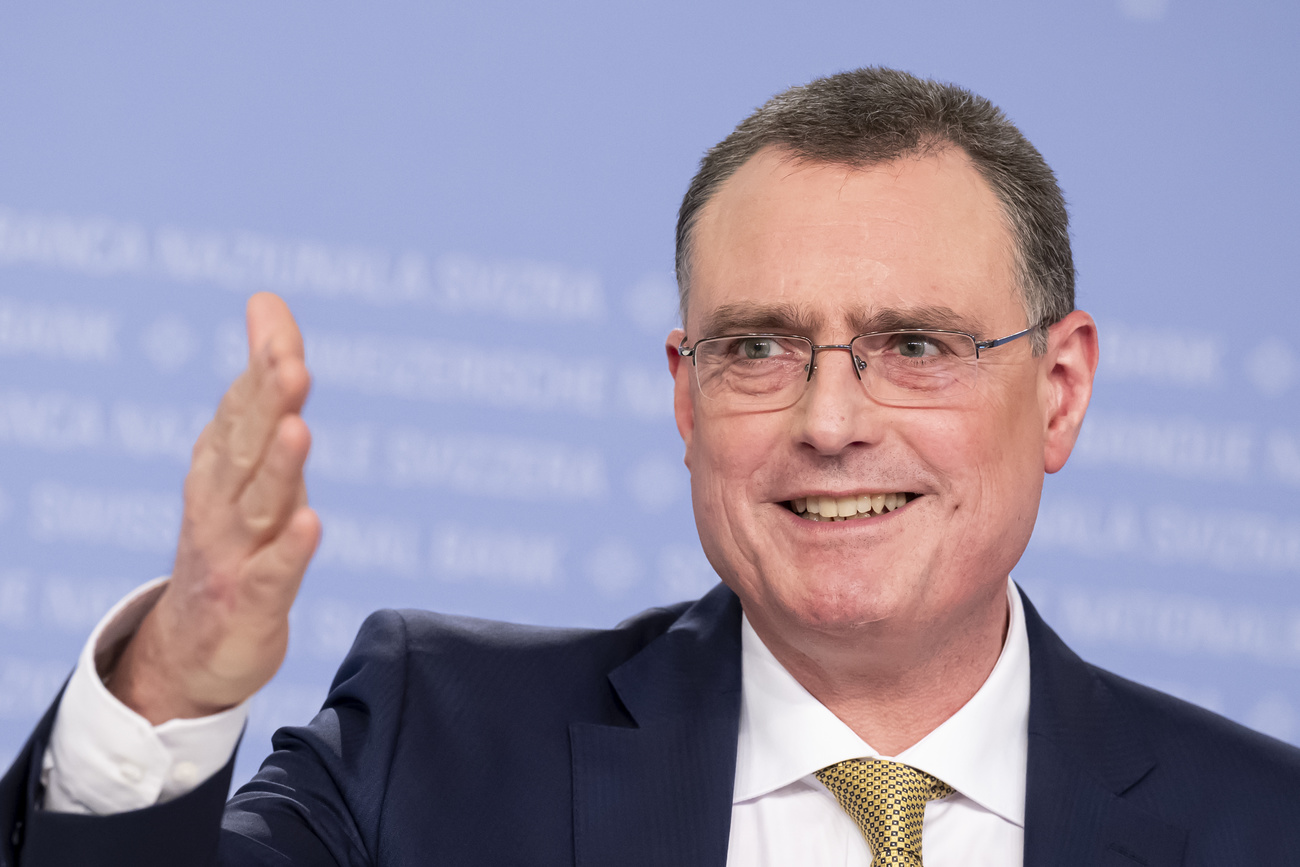Despite the pain for companies, Switzerland should nonetheless escape relatively unscathed, declared Swiss National Bank President Thomas Jordan on Tuesday.
© Keystone / Anthony Anex
A stronger franc has helped dampen inflation in Switzerland but has also been painful for domestic companies, according to Swiss National Bank President Thomas Jordan.
“The nominal appreciation of the franc has lowered inflation,” Jordan said on Tuesday at a banking event in Brig in southern Switzerland.
“The real appreciation was much lower, but the franc has also appreciated in real terms in 2023. And that hurts, companies feel that,” he said, adding that Switzerland should nonetheless escape relatively unscathed.
“Economists are confident that there won’t be a recession — and we are also confident, otherwise we would forecast one,” Jordan said. “So no recession, just weak growth.”
+ Why is the Swiss franc appreciating so much?
Jordan’s remarks come after the franc recently reached its highest level against the euro in more than two decades. The SNB has allowed some appreciation in a bid to keep inflation in check, but it’s not clear if the central bank remains comfortable with the currency’s persistent strength.
+ Five questions about the Swiss price watchdog’s inflation warnings
Latest available data show that the bank intervened to strengthen the franc through September. The SNB is unlikely to have restarted its purchases of foreign currency to push down the franc, economists at UBS said in a study published on Friday.
Jordan also echoed earlier remarks that the SNB expects Swiss inflation to approach the 2% ceiling of its target range this year, but that it won’t breach that mark until 2026. Economists expect a first SNB rate cut in September.
©2024 Bloomberg L.P.
This news story has been written and carefully fact-checked by an external editorial team. At SWI swissinfo.ch we select the most relevant news for an international audience and use automatic translation tools such as DeepL to translate it into English. Providing you with automatically translated news gives us the time to write more in-depth articles. You can find them here.
If you want to know more about how we work, have a look here, and if you have feedback on this news story please write to english@swissinfo.ch.
External Content
